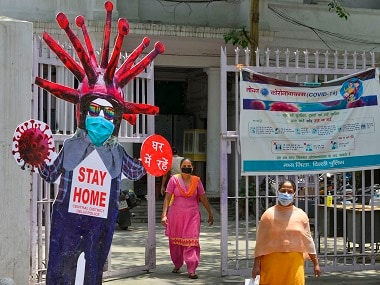Many people have predicted that once we see the end of the coronavirus pandemic that has gripped the world in its fear, we will wake up to a changed world. Many things might change forever, including the way we do business, the way we deal with our peers and even the way we deal with our families. The present lockdown, which has been termed by some as the biggest lockdown in history, is perhaps the most testing time that India, and indeed the world, has seen in peace time. The World Health Organisation has declared it a global health emergency. India has declared it a notified disaster. As a result, a number of legal acts and provisions have been invoked and triggered. Curfew provisions as detailed in the Code of Criminal Procedure of 1973 have been invoked. Similarly, the Epidemic Diseases Act, 1897 has been invoked to prohibit social gatherings, etc. The Disaster Management Act of 2005 gives other powers, including those aimed at regulating supply of medicines, etc. The current crisis will offer many lessons for the future. [caption id=“attachment_8325681” align=“alignleft” width=“380”]  Representational image. PTI[/caption] First, the obligations of nation states and of the World Health Organisation to contain the spread of diseases originating from certain countries need to be reassessed. There needs to be a vigilant eye to ensure that every nation meets its obligations to the other nation states and contains, as much as possible, diseases originating within its own borders. To some extent, this obligation is taken care of by various nations requiring people from notified nations to have undergone certain tests. An example of this is that most students who enter the United Kingdom from India need to show tests that prove that they do not suffer from tuberculosis. The World Health Organisation, similarly, must stay vigilant and ensure such a disaster is prevented by acting swiftly and containing the disease. The second issue is that of the welfare of the destitute and the homeless. States must ensure that each person is given food and basic necessities. Delhi, for instance, has converted a number of schools into temporary facilities to provide food to the homeless and to migrant labourers. The civil society also needs to step up and ensure that underprivileged people have a constant supply of essentials. There also need to be robust provisions in place which, under certain circumstances, reassess obligations of tenants and landlords, as well as those who employ on a contractual basis. Third, the lockdown will have several implications on the concept of privacy. This situation has put unprecedented pressure on authorities to trace and track patients and their close contacts, and ensure they are quarantined. The Aarogya Setu application , that has been made mandatory for both government and private employees, certainly has its uses. However, the data that is gathered and stored includes personal information like addresses and medical conditions. This data must be used and stored with utmost care and sensitivity. There have to be clear guidelines on usage and storage of the data. The guidelines also must ensure that there is a clear and transparent mechanism for redressal in cases of misuse of the data. Fourth, courts around the world have made some extremely interesting decisions. The first is regarding hearing of matters. The United States Supreme Court, for instance, has done away with oral hearings until further notice. The Indian Supreme Court has similarly allowed only the listing of urgent matters. What we define as ‘urgent’ has been reassessed. This will certainly have ramifications on how we continue to assess ‘urgency’ of matters after the situation normalises. The implementation of hearings via video conferencing has also finally been done — this will certainly prove to be a useful medium to hear cases in the future. If explored to the full potential, it may save tremendous costs and prevent delay, ensuring all parties are able to appear from their place of ordinary residence. Fifth is the reassessment of the prisons and their roles. The Supreme Court of India has directed all states to consider releasing certain categories of prisoners. This has brought into renewed focus the principles of criminal jurisprudence. When should bail be granted? Why should we jail so many people who are simply awaiting trial? Isn’t bail a right? Can prisoners be exposed to an unreasonable health threat? These ideas will be discussed when the pandemic is brought under control. The situation that we are in requires swift and ingenious solutions. Neither the law alone, nor the political class or society can overcome it by itself. This has to be a collaborative effort — one that brings together people from all sections of society. The response has to be multi-dimensional — encompassing political, executive, judicial action — as well as uncompromising societal will. After the pandemic is controlled, we will enter a changed world, and we must develop strategies on how to make it work. The author is an advocate based in Delhi and holds a Master of Laws from the University of Cambridge
The coronavirus lockdown is perhaps the most testing time that India, and indeed the world, has seen in peace time.
Advertisement
End of Article


)

)
)
)
)
)
)
)
)



